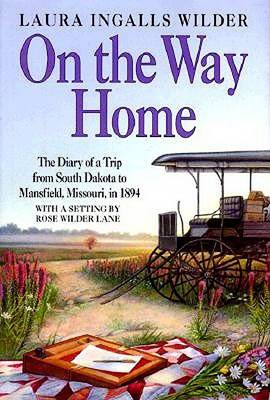For seven years there had been too little rain. The prairies were dust. Day after day, summer after summer, the scorching winds blew the dust and the sun was brassy in a yellow sky. Crop after crop failed. Again and again the barren land must be mortgaged, for taxes and food and next year's seed. The agony of hope ended when there was no harvest and no credit, no money to pay interest and taxes; the banker took the land. Then the bank failed.
In the seventh year a mysterious catastrophe was worldwide. All banks failed. From coast to coast the factories shut down, and business ceased. This was a Panic.
It was not a depression. The year was 1893, when no one had heard of depressions. Everyone knew about Panics; there had been panics in 1797, 1820, 1835, 1857, 1873.
Later:
We started at 8. Hated to leave our camping place, it seems quite like home. We crossed the James River and in 20 minutes we reached the top of the bluffs on the other side. We all stopped and looked back at the scene and I wished for an artist's hand or a poet's brain or even to be able to tell in good plain prose how beautiful it was. If I had been the Indians I would have scalped more white folks before I ever would have left it.
